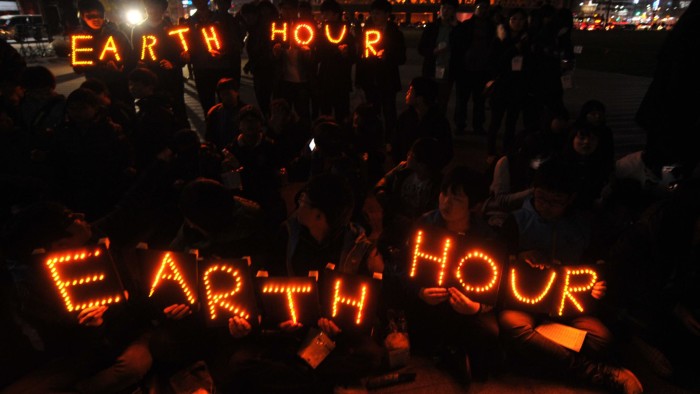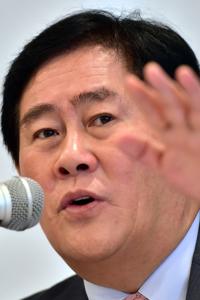S Korea’s Park faces climate change test

Roula Khalaf, Editor of the FT, selects her favourite stories in this weekly newsletter.
“Climate change is the greatest challenge of the 21st century,” South Korean President Park Geun-hye told a UN climate summit in New York in September, urging delegates to see environmental action as an opportunity not a burden.
At home, some are making the same demand of Ms Park herself, with fears that Seoul’s commitment to green policies is fraying as it battles to meet ambitious promises on growth.
Under Ms Park’s predecessor Lee Myung-bak, South Korea’s government built a reputation as one of the world’s most energetic in combating global warming. “Green growth” became an official catchphrase and an organising principle of policy, and the country promised a substantial curb in carbon emissions despite not being required to do so by the 1997 Kyoto protocol. Its perceived commitment was recognised internationally, as South Korea became the home to the Green Climate Fund, a UN body tasked with helping developing countries tackle climate change.
When Ms Park took power in February 2013, “green growth” was replaced in government publicity by the “creative economy”, as Ms Park put the focus firmly on economic growth, while highlighting the need to promote innovation and small businesses. South Korea’s government has stressed the overlap between this agenda and environmental policy, pledging to further the success of smaller South Korean companies in sewage and waste disposal technology.
Yet there was a clear break from Mr Lee’s green agenda, as in other areas, as Ms Park sought to distance herself from a leader who was deeply unpopular by the end of his term. A presidential committee on green growth was downgraded to prime ministerial level, while several bureaus had the word “green” removed from their names. There is only one allusion to climate change in the seven policy priorities outlined by the environment ministry this year, which deal mostly with safety and job creation.

Hela Cheikhrouhou, head of the UN’s Green Climate Fund, says it has continued to enjoy support from South Korea’s government, which became one of the first nations to promise money to the fund with a $100m pledge. “It is quite beneficial for the fund to be located in Korea,” she says. “It is an example of a country that has moved from being poor into an OECD country, and has an increasing awareness of the need to be mindful of the environment.”
But South Korean environmentalists had cause for concern in July when Choi Kyung-hwan, a conservative lawmaker, was named finance minister. Mr Choi had been an outspoken critic of Mr Lee’s plans to cut carbon emissions, warning that it could undermine the competitiveness of South Korean industry. Two months after his appointment, the finance ministry announced that the introduction of a carbon tax devised under Mr Lee – scheduled for next year – would be postponed until the end of 2020.
The finance ministry said the measure was taken because it would have put an excessive burden on industry if the tax were imposed at the same time as a new cap-and-trade system for carbon emissions.
But some had predicted that the levy would slash the domestic sales of carmakers Hyundai Motor and Kia Motors, which have struggled to compete with foreign peers in developing more fuel-efficient vehicles. The suspicions of green groups were raised further when the government relaxed planned fuel efficiency standards for vehicles. “Park Geun-hye is driving the wrong way on carbon,” wrote Ahn Byeong-ok, head of South Korea’s Institute for Climate Change Action, after that decision.
The emissions cap-and-trade system will come into force in January, despite Mr Choi’s recent assessment of it as “flawed in many ways”. But in September, the government raised the emissions limit for the first three years by 3 per cent, after complaints from the country’s leading business lobby group that the cap was too low and that the system could cost businesses almost $9bn a year.
Nonetheless, the cap-and-trade structure will be one of the world’s largest, capping the annual emissions of 400 major carbon emitters at about 562m tonnes – a substantial cut from the 2010 figure of 669m tonnes. A firm commitment towards the ambitious system may go some way to convince sceptical environmentalists that Ms Park’s statements on climate change are sincere.
Comments